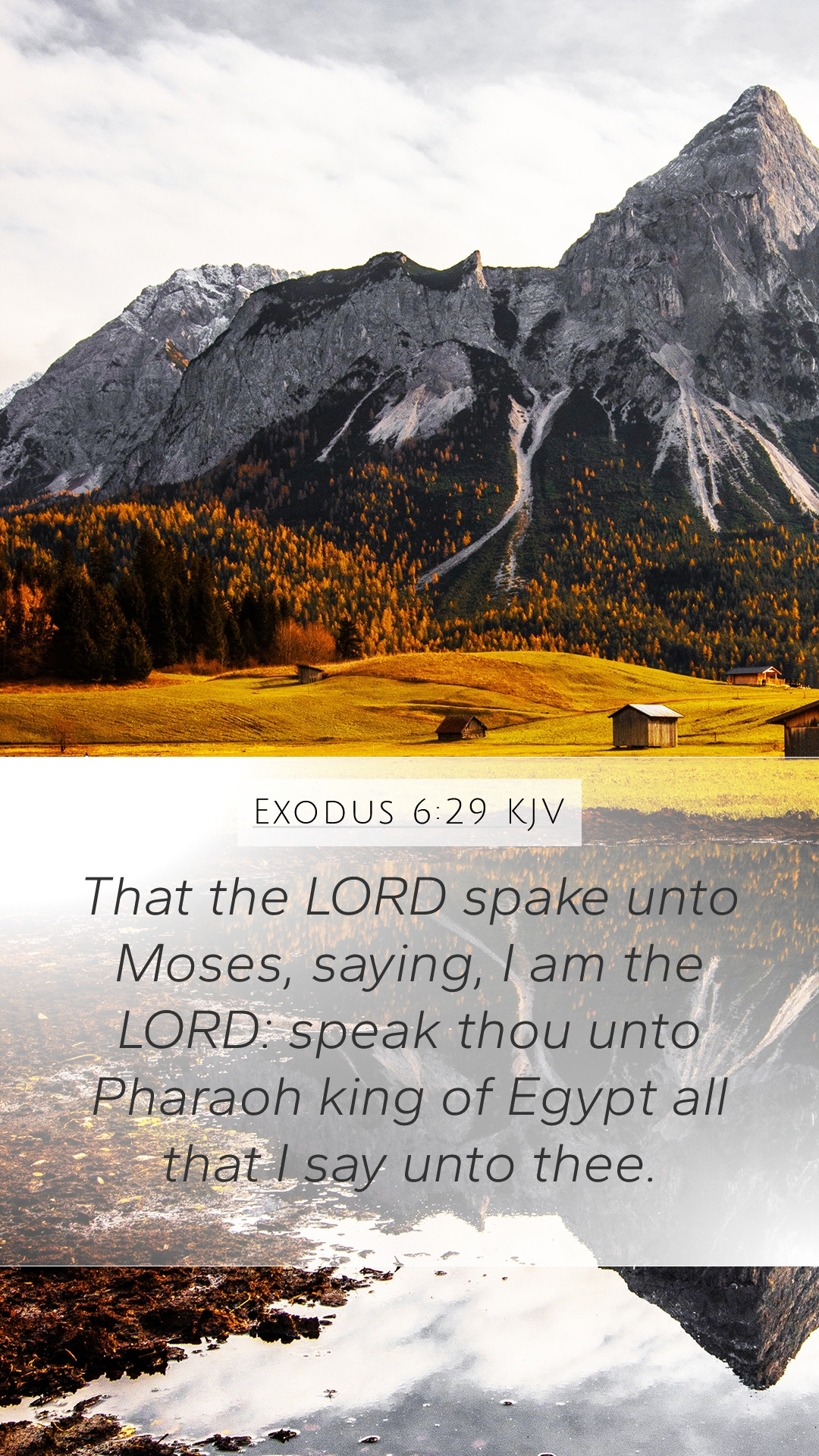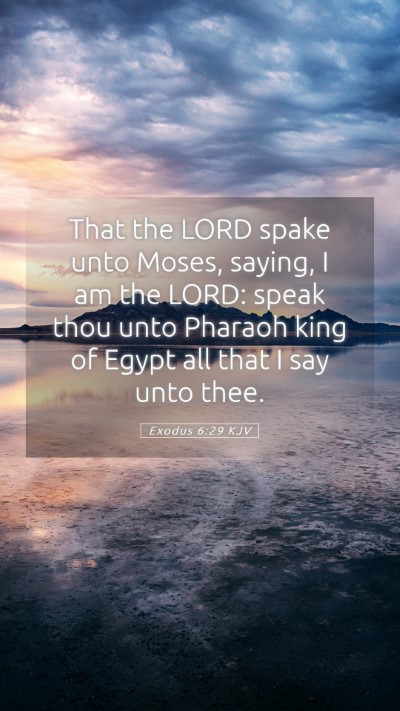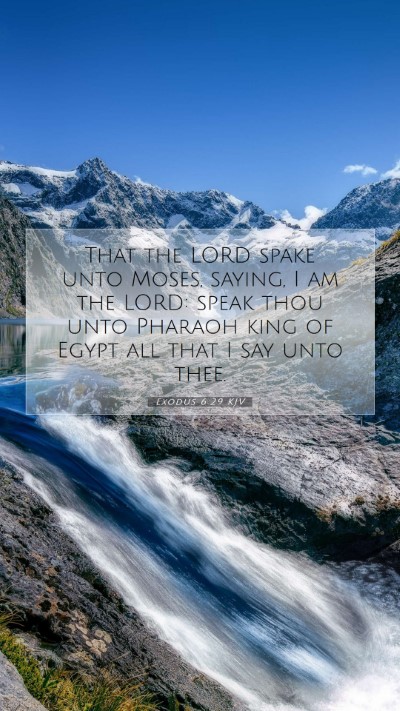Bible Verse Commentary on Exodus 6:29
Exodus 6:29: "Then the Lord spoke to Moses, saying, 'I am the Lord; speak to Pharaoh king of Egypt all that I say to you.'
Understanding Exodus 6:29
The verse serves as a pivotal moment in the narrative of Moses and Pharaoh, encapsulating the essence of divine communication and the responsibilities of prophets. Below are summarized insights derived from renowned public domain commentaries:
Bible Verse Meanings
- Divine Authority: God's declaration of "I am the Lord" emphasizes His supreme authority. Matthew Henry notes that acknowledging God's sovereignty is crucial for understanding His commands.
- Moses’ Commission: God commands Moses to speak to Pharaoh, showcasing Moses' role as a mediator between God and the Egyptian ruler. Albert Barnes highlights that this commissioning is essential as God empowers Moses, underlining the importance of divine appointment in ministry.
- Specificity of Message: The phrase "all that I say to you" signifies that Moses is to deliver God's message without alteration. Adam Clarke posits that the integrity of the message is paramount; thus, Moses must convey it precisely as received.
- Importance of Obedience: The directive highlights the significance of obedience in communication with authorities. This element is often discussed in Bible study groups focusing on leadership and responsibility.
Bible Verse Interpretations
The interpretations of Exodus 6:29 reveal layers of meaning that resonate with various aspects of biblical leadership:
- Historical Context: Throughout history, prophets have faced formidable leaders. Understanding the historical context helps in interpreting the challenges Moses would face.
- Faith and Courage: Moses is encouraged to trust God's presence as he delivers the message—a recurrent theme in Scripture and an important lesson in applying Bible verses to daily life.
- Reflection on Authority: The verse invites reflection on how believers engage with authorities today, making it relevant for contemporary readers seeking biblical exegesis.
Bible Study Insights
When conducting a Bible study on Exodus 6:29, one might explore various questions and themes:
- Role of Prophets: Discuss the role of prophets within the Old Testament and the implications for modern-day believers.
- God's Communication: Analyze how God communicates with His people and the importance of listening to His voice.
- Authority in Scripture: Explore the theme of authority in the Bible, looking at the dynamic between human rulers and divine command.
Significance of Exodus 6:29
This verse underscores a crucial theme in Scripture: the necessity of clear, direct communication from God to His leaders. It establishes a model for how believers can understand and convey God’s will:
- The Assurance of God’s Presence: Just as God assured Moses, believers today can trust in God’s presence as they engage in their missions.
- Clarity in Communication: Following God's instructions and presenting them clearly can be applied to any form of ministry or outreach.
- Encouraging Faithfulness: The call to speak boldly reflects the broader Christian call to faithfully share the gospel.
Application of Exodus 6:29
The practical applications of this verse can be numerous, particularly in a Bible study context:
- Speaking Truth: Encourage participants to consider how they can speak God’s truth in their own lives and communities.
- John 14:26 - The Helper: Reflect on how God provides support and guidance in times of challenge, paralleling Moses’ experiences.
- Faith in Action: Challenge Bible study groups to think of real-world scenarios where they might need to follow God's guidance in speaking to others.
Related Bible Cross References
- Exodus 3:10 - The Calling of Moses.
- Exodus 7:1-2 - God's Commission to Moses as a God to Pharaoh.
- Acts 7:35 - Stephen’s account of Moses' calling.
Through the lens of Exodus 6:29, one can gain profound Bible verse understanding and Bible verse explanations, leading to effective Bible study insights for personal growth and community edification.


